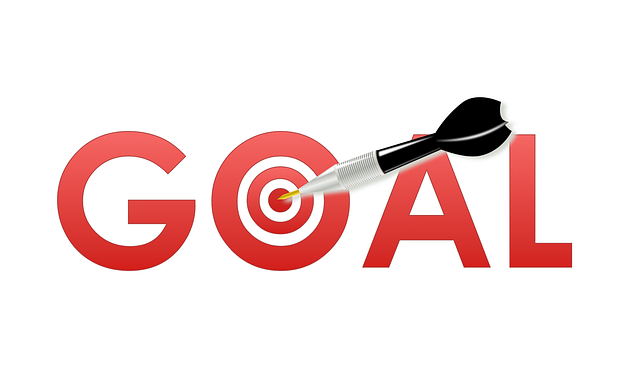In today's digital age, social media has become an essential tool for small businesses to reach their target audience, build brand awareness, and drive sales. With over 3.8 billion people using social media platforms worldwide, it's no longer a question of whether small businesses should be on social media, but how they can use it effectively to grow their business.
However, with so many platforms and strategies to choose from, it can be overwhelming for small business owners to create an effective social media campaign. In this article, we will provide valuable tips and insights to help small businesses create a successful social media campaign that resonates with their audience and grows their business.
Summary
In this article, we will cover the essential tips and strategies for small businesses to create an effective social media campaign. From understanding your target audience to adjusting and optimizing your campaign, we will provide actionable advice to help small businesses succeed in the world of social media marketing.
Understanding Your Target Audience

Before creating a social media campaign, it's crucial to understand who your target audience is. This includes identifying their demographics, interests, behaviors, and pain points. Knowing your audience will help you create content that resonates with them, choose the right social media platforms, and tailor your messaging to their needs. To understand your target audience, conduct market research, analyze customer data, and create buyer personas. For example, if you're a small business owner of a yoga studio, your target audience may be health-conscious individuals aged 25-45 who live in urban areas and are interested in wellness and fitness.
Setting Clear Goals and Objectives

Defining what you want to achieve through your social media campaign is essential to its success. Having clear goals will help you create a focused campaign, allocate resources effectively, and measure performance. Common social media goals for small businesses include increasing brand awareness, generating leads, driving website traffic, and boosting sales. For example, if you're a small business owner of an e-commerce store, your goal may be to increase website traffic by 20% in the next quarter through social media marketing.
Choosing the Right Social Media Platforms

Not all social media platforms are created equal, and each has its unique features, audience, and uses. Choose the platforms where your target audience is most active, such as Facebook, Instagram, Twitter, or LinkedIn. For example, if your target audience is visually-oriented, Instagram or TikTok may be the best platforms for your business. If your target audience is professionals, LinkedIn may be the best platform.
Creating Engaging Content

Developing a content strategy that includes a mix of informative, entertaining, and engaging content is crucial to capturing your audience's attention. Use high-quality visuals, videos, and stories to make your content stand out. Create content that educates, inspires, or solves problems for your audience. For example, if you're a small business owner of a bakery, you can create recipe videos, share behind-the-scenes stories, or post mouth-watering photos of your products.
Building a Content Calendar

Planning and scheduling your content in advance using a content calendar can help you save time, ensure consistency, and reduce last-minute scrambles. A content calendar helps you organize your content, identify gaps, and make adjustments. For example, you can plan to post on Facebook three times a week, Instagram five times a week, and Twitter seven times a week.
Leveraging Hashtags and Trends

Using relevant hashtags and trends can increase the visibility of your content, attract new followers, and drive engagement. Research popular hashtags in your industry and include them in your posts. Use tools like Hashtagify or RiteTag to find relevant hashtags. For example, if you're a small business owner of a fashion brand, you can use hashtags like #fashion, #style, or #fashiontrends.
Running Social Media Ads

Consider running social media ads to amplify your reach, drive traffic, and generate leads. Platforms like Facebook and Instagram offer powerful advertising tools that allow you to target specific audiences, set budgets, and track performance. For example, you can run a Facebook ad campaign to drive website traffic or promote a specific product.
Engaging with Your Audience

Social media is a two-way conversation, and engaging with your audience is crucial to building trust, loyalty, and advocacy. Respond to comments, messages, and reviews in a timely and personalized manner. Use social listening to stay on top of industry conversations and trends. For example, if someone comments on your post, respond with a personalized message or offer help.
Monitoring and Measuring Performance

Tracking your performance using analytics tools provided by each platform can help you see what's working and what's not. Monitor engagement rates, website traffic, and conversions to adjust your campaign. Use tools like Google Analytics or Hootsuite Insights to track performance. For example, if your Facebook engagement rate is low, adjust your content strategy or ad targeting.
Adjusting and Optimizing Your Campaign
Based on your performance data, adjust and optimize your campaign regularly. Try new content types, hashtags, and ad targeting to improve your results. For example, if your Instagram stories are performing well, increase your story posts or try new story formats like IGTV or Reels.
Conclusion
Creating an effective social media campaign requires time, effort, and a clear understanding of your target audience. By following these tips and strategies, small businesses can build a strong online presence, engage with their audience, and drive business growth.
FAQs
Question 1: What is the best social media platform for small businesses?
Answer: The best platform depends on your target audience and goals. Facebook and Instagram are popular choices for most businesses.
Question 2: How often should I post on social media?
Answer: Post frequency varies by platform, but aim for 3-5 times per week on Facebook and Instagram, and 5-7 times per week on Twitter.
Question 3: What is the ideal length of a social media post?
Answer: Keep posts concise and scannable, with a maximum of 2-3 short paragraphs or 280 characters on Twitter.
Question 4: Can I use social media to drive sales?
Answer: Yes, social media can be an effective sales channel. Use platforms like Facebook and Instagram to run targeted ads and drive traffic to your website.
Question 5: How do I measure the success of my social media campaign?
Answer: Use analytics tools to track engagement rates, website traffic, and conversions. Adjust your campaign based on your performance data.

Reading this article has been incredibly helpful in understanding how to create a successful social media campaign for my small business. The tips and insights offered have given me a clear roadmap to reach my target audience and build my brand effectively. I’m looking forward to applying these strategies to grow my business.